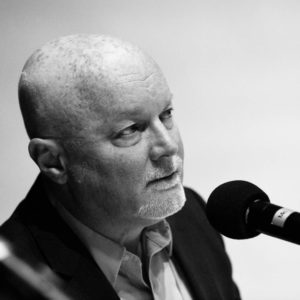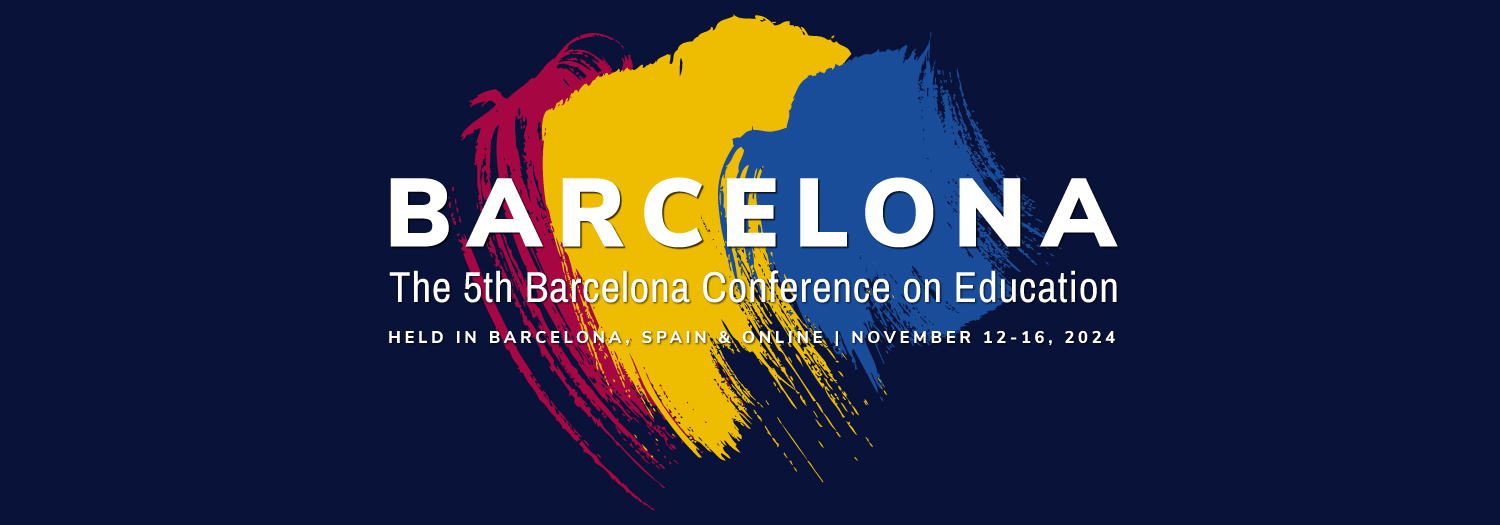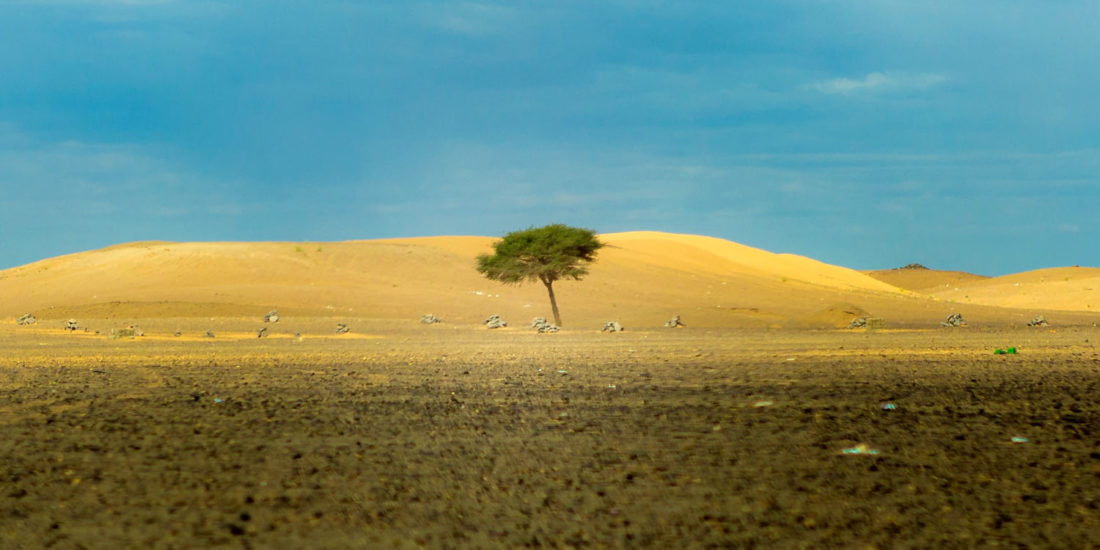“Resilience is an Academic Job Requirement” by Donald E. Hall of Binghamton University, United States, has been announced as a keynote to be presented at The 3rd Barcelona Conference on Education (BCE2022) and The 3rd Barcelona Conference on Arts, Media & Culture (BAMC2022).
To participate in BCE/BAMC2022 as an audience member, please register for the conference.
This plenary will also be available for IAFOR Members to view online. To find out more, please visit the IAFOR Membership page.
Abstract
Resilience is an Academic Job Requirement
It is an understatement to note that the past two years have been debilitating for all of us in higher education. Masking mandates, remote teaching requirements, disrupted research plans, and curtailed travel to events such as the one we are holding now in Barcelona have sapped much of our optimism and sense of attachment to our students, colleagues, and institutions. To say the least, many of us feel burned out.
I want first to validate and honour that feeling of resilience depletion. I have experienced it myself as I have worked through university financial challenges, student crises, and a variety of personal disruptions. Nevertheless, I do love my job and I want to offer here a gentle nudge back for all of us toward renewal and re-attachment to our academic passions and toward a reignition of our intellectual/pedagogical enthusiasm. Colloquially, we have to find a way to “get over it.”
Indeed, burnout and cynicism are not at all unique to the pandemic and post-pandemic academic world. They have been endemic for decades and more. Twenty years ago, in one of my early books The Academic Self: An Owner’s Manual, I noted the prevalence of feelings of “burn out” throughout higher education, and in that book I worked to frame it as an inexcusable failure to meet our core job responsibilities—to generate new ideas through our research and to position our students for success in their lives and intellectual journeys.
In this talk, I will glance at some of the ways that the academic cynicism enabling burnout had become something of a cottage industry even before the pandemic and why such self-indulgence is indefensible. The pandemic further enabled some of the worst excesses of pre-pandemic cynical thinking. We have active choices to make—and I will emphasise the conjoined empowerment and responsibility that go with that concept of “choice.” In returning to some of the early voices of transformational pedagogy, such as those of Paolo Freire and bell hooks, I offer a few reminders. We in academia, however frustrated we may be with health protocols and zoom-based interactions, have chosen and have been fortunate to secure a career of incredible privilege. We of privilege have an implicit employment contract in which our mission, and our core job requirement, is to change lives through our teaching and research. If we choose the self-indulgence of cynicism and burnout, rather than outward engagement, we are, quite frankly, not doing our jobs. And there are many enthusiastic and optimistic under-employed and unemployed individuals (graduate students, public intellectuals, post-docs and others) who, quite bluntly, have a better claim to the positions that we currently hold.
Speaker Biography
Donald E. Hall
Binghamton University, United States
 Donald E. Hall is Provost and Executive Vice President for Academic Affairs at Binghamton University (SUNY), USA. He was formerly Dean of the Faculty of Arts, Sciences, and Engineering at the University of Rochester, USA, and held a previous position as Dean of Arts and Sciences at Lehigh University, USA. Provost Hall has published widely in the fields of British Studies, Gender Theory, Cultural Studies, and Professional Studies. Over the course of his career, he served as Jackson Distinguished Professor of English and Chair of the Department of English (and previously Chair of the Department of Foreign Languages) at West Virginia University. Before that, he was Professor of English and Chair of the Department of English at California State University, Northridge, where he taught for 13 years. He is a recipient of the University Distinguished Teaching Award at CSUN, was a visiting professor at the National University of Rwanda, was Lansdowne Distinguished Visiting Scholar at the University of Victoria (Canada), was Fulbright Distinguished Chair in Cultural Studies at Karl Franzens University in Graz, Austria, and was Fulbright Specialist at the University of Helsinki. He has also taught in Sweden, Romania, Hungary, and China. He served on numerous panels and committees for the Modern Language Association (MLA), including the Task Force on Evaluating Scholarship for Tenure and Promotion, and the Convention Program Committee. In 2012, he served as national President of the Association of Departments of English. From 2013-2017, he served on the Executive Council of the MLA.
Donald E. Hall is Provost and Executive Vice President for Academic Affairs at Binghamton University (SUNY), USA. He was formerly Dean of the Faculty of Arts, Sciences, and Engineering at the University of Rochester, USA, and held a previous position as Dean of Arts and Sciences at Lehigh University, USA. Provost Hall has published widely in the fields of British Studies, Gender Theory, Cultural Studies, and Professional Studies. Over the course of his career, he served as Jackson Distinguished Professor of English and Chair of the Department of English (and previously Chair of the Department of Foreign Languages) at West Virginia University. Before that, he was Professor of English and Chair of the Department of English at California State University, Northridge, where he taught for 13 years. He is a recipient of the University Distinguished Teaching Award at CSUN, was a visiting professor at the National University of Rwanda, was Lansdowne Distinguished Visiting Scholar at the University of Victoria (Canada), was Fulbright Distinguished Chair in Cultural Studies at Karl Franzens University in Graz, Austria, and was Fulbright Specialist at the University of Helsinki. He has also taught in Sweden, Romania, Hungary, and China. He served on numerous panels and committees for the Modern Language Association (MLA), including the Task Force on Evaluating Scholarship for Tenure and Promotion, and the Convention Program Committee. In 2012, he served as national President of the Association of Departments of English. From 2013-2017, he served on the Executive Council of the MLA.
His current and forthcoming work examines issues such as professional responsibility and academic community-building, the dialogics of social change and activist intellectualism, and the Victorian (and our continuing) interest in the deployment of instrumental agency over our social, vocational, and sexual selves. Among his many books and editions are the influential faculty development guides, The Academic Self and The Academic Community, both published by Ohio State University Press. Subjectivities and Reading Sexualities: Hermeneutic Theory and the Future of Queer Studies were both published by Routledge Press. Most recently he and Annamarie Jagose, of the University of Auckland, co-edited a volume titled The Routledge Queer Studies Reader. Though he is a full-time administrator, he continues to lecture worldwide on the value of a liberal arts education and the need for nurturing global competencies in students and interdisciplinary dialogue in and beyond the classroom.
Professor Donald E. Hall is a Vice-President of IAFOR. He is Chair of the Arts, Humanities, Media & Culture division of the International Academic Advisory Board.


You must be logged in to post a comment.